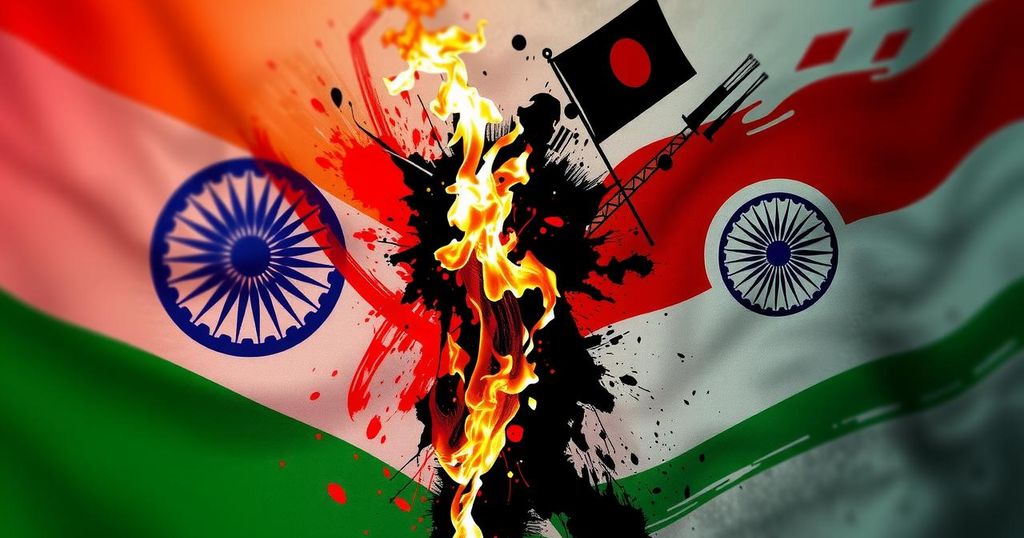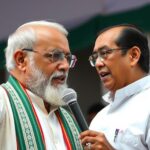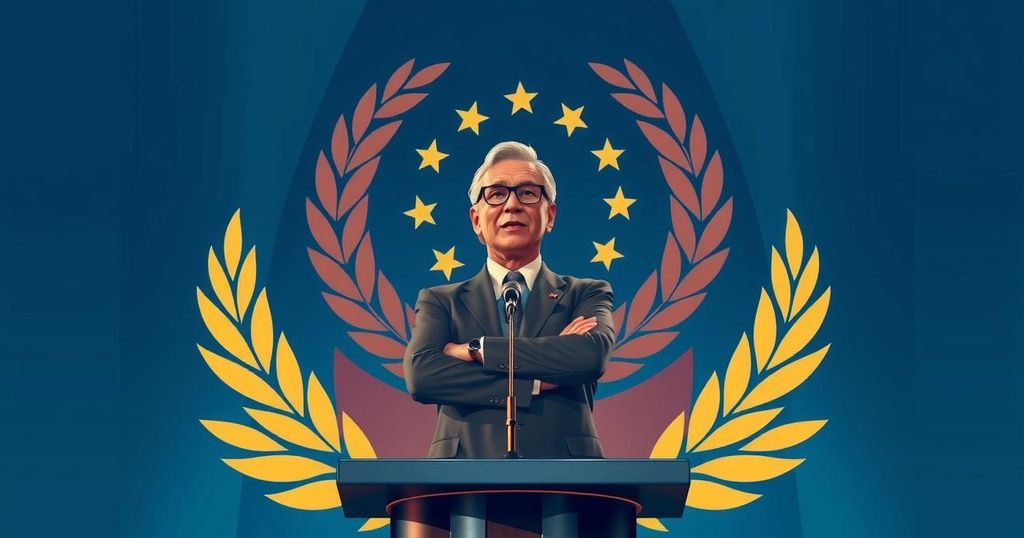Political Turmoil in Bangladesh: Implications for India and Regional Stability
Bangladesh’s interim government under Mohammad Yunus appears increasingly unstable, with potential elections delayed amidst rising tensions, particularly from student factions seeking reform. The situation is further complicated by growing anti-Indian sentiments and the ascendance of Islamist political forces. India’s passive stance in engaging with the interim authority risks alienating Bangladesh and re-establishing old conflicts.
As Bangladesh approaches a state of turmoil, the Indian government appears to be distancing itself from the country’s interim leadership. The interim prime minister, Nobel Laureate Mohammad Yunus, is seemingly unwilling to relinquish power and has indicated potential elections might not occur until late 2025 or early 2026. Furthermore, his proposition to lower the voting age from 18 to 17 could hinder the electoral process due to the necessity of updating voter registration.
The ongoing discontent among students and reformers has implied the possibility of a new political party emerging to replace the current administration, though the path forward remains unclear. Recently, student leaders hinted at declaring a ‘Second Republic’, a move that would undermine the legitimacy of existing governance structures. Such a declaration has the potential to disrupt the status quo, with the Bangladesh Army reportedly influencing students to abandon such plans due to concerns about escalating violence.
Increasing tensions within the populace are reflected in the recent formation of six reform commissions by Yunus’s administration to address systemic issues ranging from corruption to constitutional reform, with student representatives involved. However, these commissions have yet to produce submitted reports, thus prolonging Yunus’s tenure. Notably, Yunus appears to be influenced by his student adviser, Mahfuz Alam, who has voiced anti-Indian sentiments, prompting concern over rising nationalism among the youth.
The political landscape in Bangladesh is further complicated by signs of Islamist groups gaining traction amidst social unrest. The relaunch of the anti-India newspaper, Amar Desh, reflects a revival of radical sentiments, as its editor aims to document perceived injustices against Muslims globally. This political climate carries implications for India, as rising anti-India alliances may emerge, shaped by perceived failures in India-Bangladesh relations.
Additionally, foreign powers, particularly China and Pakistan, seem to be capitalizing on the instability. Pakistan has increased its military engagement with Bangladesh, while China has demonstrated support through humanitarian efforts towards injured activists post-uprising. India’s current foreign policy stance appears passive, failing to forge significant connections with the interim government or the Bangladeshi populace, thus risking an alienation reminiscent of pre-1971 relations.
If this trend continues, India could find itself increasingly isolated in Bangladesh, undermining its historical ties and influence in the region.
The political situation in Bangladesh is currently fraught with instability, marked by civil unrest and an uncertain future following the July uprising. The interim government, led by Mohammad Yunus, faces increasing pressure from student factions and calls for reform, while simultaneously navigating potential constitutional changes. Anti-Indian sentiment appears to be on the rise amidst these dynamics, complicating longstanding bilateral relationships. As regional powers like China and Pakistan seek to exploit these pressures, the implications for Indian foreign policy grow more significant. Understanding the interplay of these factors is essential for comprehending the broader geopolitical landscape in South Asia.
In summary, the political discord in Bangladesh poses significant challenges to both domestic governance and international relations, particularly with India. The reluctance of the interim government to engage collaboratively with the opposition and rising anti-Indian sentiments among youth could lead to a fractious environment that favors external influences. Should India maintain its current disengagement strategy, it risks reinforcing a trajectory towards isolation which may fundamentally alter its historical ties with Bangladesh.
Original Source: www.deccanherald.com








Post Comment